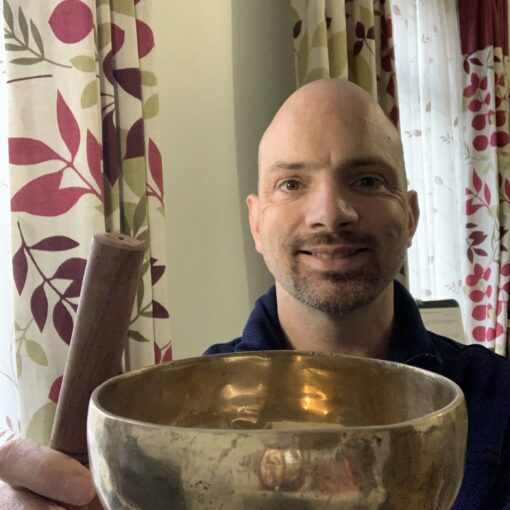‘Perfect is the enemy of good.’ Voltaire
Are you a perfectionist? Do you set higher standards for yourself than you do for other people? Do you strive for continual improvement in areas of your life you value, for example in your golf? As a ‘reforming’ (that is, not quite reformed) perfectionist who has a sport-related PhD on martial arts pedagogy and qualification and personal practice in mindfulness, I will discuss in this article why perfectionism isn’t always helpful and how it can in fact be detrimental to your performance in closed-skill sports such as golf.
What is perfectionism? In their useful book on Overcoming Perfectionism, Shafron, Egan and Wade offer the following definition:
‘Perfectionism is the setting of, and striving to meet, very demanding standards that are self-imposed and relentlessly pursued despite this causing problems. It involves basing your self-worth almost exclusively on how well these high standards are pursued and achieved.’
But, you may ask, isn’t setting high standards and seeking to improve the way that you get better in your practice and competition? If I drop my standards won’t I just be accepting poor performance? On these questions, it’s important to acknowledge the difference between a healthy pursuit of excellence and unhealthy perfectionism. Setting goals, such as placing in a competition or increasing your personal best score, is an important way to motivate yourself to improve. With unhealthy perfectionism, however, setting high standards for yourself and either discounting their value if they are met, or harshly criticising yourself if they are not, can lower motivation and hinder rather than help your golfing performance. Kristin Neff, a renowned psychologist who researches self-compassion, notes that striving to meet goals can become counter-productive if you place too much of your self-worth in meeting those high-standards.
Optimum effort and self-compassion instead of self-criticism
Perfectionists often ‘over-train’, increasing the duration of training or number of practice shots, for example, in the belief that just putting in more effort will improve technique. Such determination is admirable, but misguided. The amount of improvement you get from increasing effort has a limit. Repetition of closed skills such as driving or putting are necessary to train the body and refine technique, but if you push yourself to repeat shots to the extent that you become fatigued then, no matter how hard you try, your performance level is likely to dip.
My hard-earned advice here is that it is optimum, rather than maximum, effort that is required to improve. If you notice that you are getting tired, take a break, and also give yourself a break – try to frame your inner monologue as though you were supporting a friend, rather than berating yourself for a poor shot or competition performance. We are often much harder on ourselves than we are on others. This tends to lower our confidence and motivation rather than helping us to get over a mistake. Self-compassion is a more effective motivator than self-criticism. Give yourself the mental support you need to get over the difficulty, rather than telling yourself that you are a failure.
Focus mindfully on your shot, rather than worrying about the outcome
Besides not over-training and being more self-compassionate, another tip to improve your golf when under pressure is to be mindful. Jon Kabat-Zinn, an authority on mindfulness who applied Buddhist mindfulness practices to stress reduction, states:
‘Mindfulness means paying attention in a particular way: on purpose, in the present moment, and nonjudgmentally.’
Applying mindfulness during training or competition means that you focus on what you are doing in the present, paying attention to form, breath, and relaxation, rather than on the outcome of the shot. If you overly focus on the outcome, for example, whether you are playing above or below your handicap, or winning or losing the competition, then you can become more emotionally and physically tense. This is likely to impair your technique and so lead to a worse result. A key point here is that if you concentrate on improving your form when you perform a shot, rather than its outcome, your likelihood of performing a good drive or making the put will increase. Try not to get hung up on the outcome of your shots, instead be mindful – pay attention in the moment of the shot to optimising your form and technique.
Some practical suggestions for optimise your golf using mindfulness
I’ll conclude this article with a couple of practical suggestions on how you can apply mindfulness and compassion in your training and competitive routines to help you optimise your performance.
- If you suffer from performance anxiety, for example before a competition, one mindfulness technique you can use is S.T.O.P. – an acronym for ‘Stop, Take a Breath, Observe, and Proceed’. It needn’t take long – a minute is all you need. The first thing to do is pause and notice how you feel (e.g. nervous). Taking a deep breath will help calm you. Observe how you feel and whether your emotions are affecting you physically. This act of observation will help distance you mentally from the immediacy of your emotional reaction. Mindfully observing how you feel with self-compassion, rather than either buying into it (‘I feel really nervous’) or resisting it (‘I hate being anxious’), will make it more manageable. You’ll then be able to proceed with your competition with a bit more composure, even if it’s still a pressured occasion.
- If you find yourself distracted, by thoughts, sounds, or feeling under pressure during practice or competition, you can try a short ‘sport-object meditation’. Choose an everyday golf-item that you take with you whenever you play golf: for example, a ball, club, glove, or tee. Spend a couple of minutes paying attention to that object. Become aware its physical characteristics: form, texture, shape, weight, even its smell. Remember all you need to do is to observe the object without judgement – mindfully. How does it make you feel? Remember all the hours you’ve put in training and playing using the object or something similar? Express a sense of internal gratitude to the object, for the pleasure it gives you in enabling you to play the game you love. Spending a couple of minutes connecting with a golf-related object and reminding yourself of the simple joy of playing golf will help bring you refocus on the present and let go of the distraction.
Mindfulness and self-compassion are not a panacea for dealing with pressures either in sport or life. These approaches won’t eradicate difficulties such as performance anxiety, frustration, or disappointment when you fail to reach a personal goal. However, incorporating mindfulness and self-compassion into your game may help you cope better with such challenges, and in doing so enable you to perform better. If you’d like to learn more about the approach outlined in this article, visit www.mindfulkindfulness.co.uk for information about the course on ‘Improving Sports Performance through Mindfulness and Compassion’ or contact kris@mindfulkindfulness.co.uk with any enquiries.



